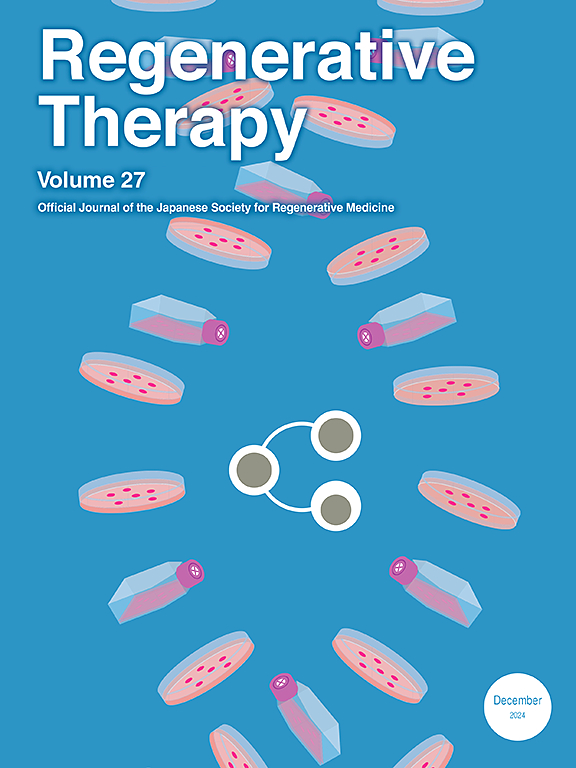Development of chimeric antigen receptor T cells targeting cancer-expressing podocalyxin
IF 3.4
3区 环境科学与生态学
Q3 CELL & TISSUE ENGINEERING
引用次数: 0
Abstract
Chimeric Antigen Receptor (CAR)-T cell therapy has revolutionized the treatment of CD19-positive B-cell malignancies. However, the field is rapidly evolving to target other antigens, such as podocalyxin (PODXL), a transmembrane protein implicated in tumor progression and poor prognosis in various cancers. This study explores the potential of PODXL-targeted CAR-T cells, utilizing a cancer-specific monoclonal antibody (CasMab) technique to enhance the specificity and safety of CAR-T cell therapy. We developed CAR-T cells based on the single-chain variable fragment (scFv) derived from the cancer-specific monoclonal antibody PcMab-6, which selectively targets glycosylation modifications on PODXL-expressing cancer cells. As a control, CAR-T cells were also generated from PcMab-47, a non-cancer-specific antibody for PODXL. In vitro experiments demonstrated that CAR-T cells based on PcMab-6 exhibited significant antitumor activity with reduced off-target effects on normal cells compared to PcMab-47-derived CAR-T cells. Additionally, to enhance the persistence and therapeutic efficacy of these CAR-T cells, we developed a humanized version of PcMab-6 scFv. The humanized CAR-T cells showed extended antitumor effects in vivo, demonstrating the potential for prolonged therapeutic activity. These findings underscore the utility of CasMab technology in generating highly specific and safer CAR-T cell therapies for solid tumors, highlighting the promise of humanized CAR-T cells for clinical application.
求助全文
约1分钟内获得全文
求助全文
来源期刊

Regenerative Therapy
Engineering-Biomedical Engineering
CiteScore
6.00
自引率
2.30%
发文量
106
审稿时长
49 days
期刊介绍:
Regenerative Therapy is the official peer-reviewed online journal of the Japanese Society for Regenerative Medicine.
Regenerative Therapy is a multidisciplinary journal that publishes original articles and reviews of basic research, clinical translation, industrial development, and regulatory issues focusing on stem cell biology, tissue engineering, and regenerative medicine.
 求助内容:
求助内容: 应助结果提醒方式:
应助结果提醒方式:


